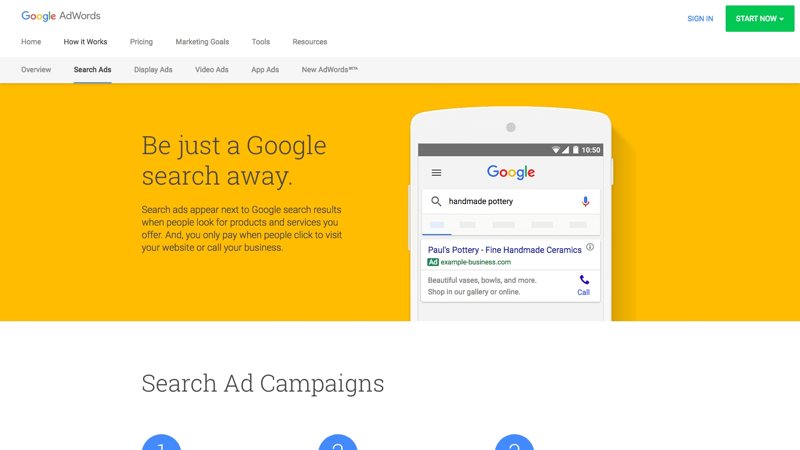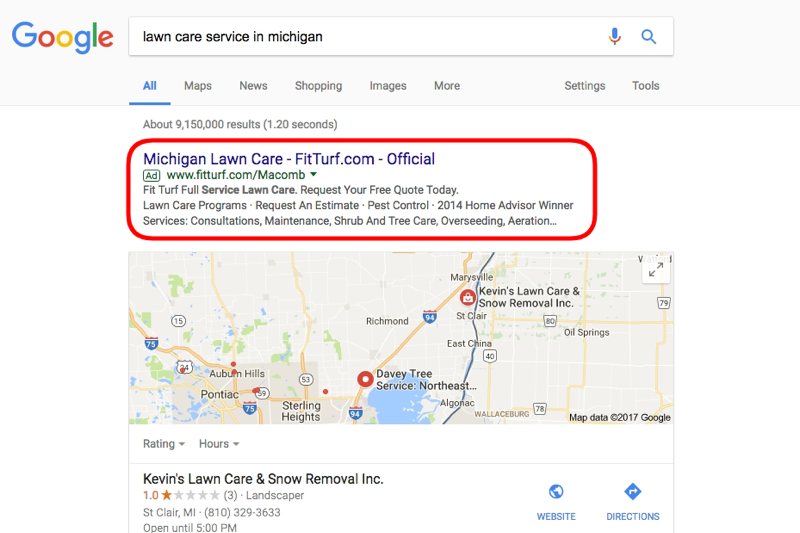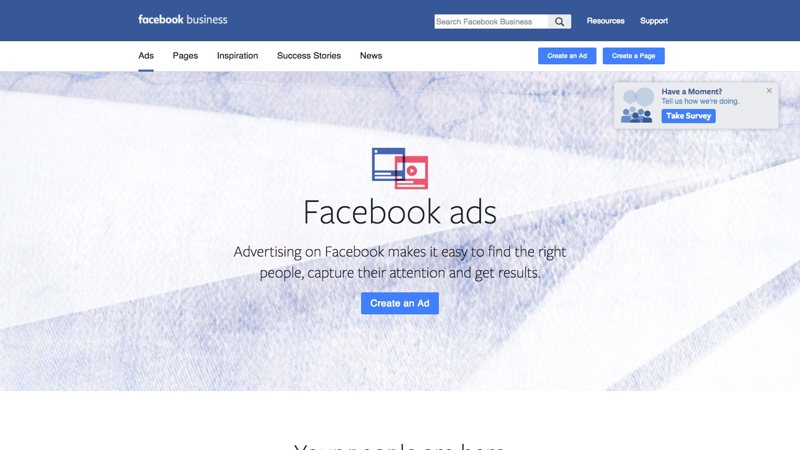PPC advertising (pay-per-click advertising) is one of the most common forms of Internet marketing. Instead of paying for impressions, like you would with a billboard, you only pay when someone clicks on your ad. The ultimate goal is for a customer’s click to turn into an active website visitor, and the website visitor to become a paying customer. You want each click to end up being worth more than you paid for it.
Could Your Small Business Grow Using PPC Advertising?
Pay-per-click advertising works well for any small business needing an increase in leads quickly. Unlike search engine optimization, which takes a long time to work efficiently, PPC ads can increase website traffic immediately.

One of the most important aspects of PPC advertising isn’t even the ad, it’s your website! A strong landing page and precise, tailored marketing message can help turn those clicks into customers. If you don’t have a professional website design converting visitors into customers, you could be wasting your time and money on advertising. A solid marketing foundation helps ease the transition into digital advertising.
Pay-per-click advertising is a great option for small businesses. You can choose how much money you want to spend, which platform will connect best with your target market, and quickly obtain more sales. However, making successful choices and analyzing results can be tricky. For the best return on your investment, hiring a company or expert to help may go a long way.
How Pay-Per-Click Advertising Works
PPC advertising works by using a bid system. You set a maximum bid amount for your ad in an advertising platform. The platform then goes into their pool of bids and picks the ones most relevant based on the target user or search, quality, and amount of bid. Because the platform uses an algorithm of different stats to choose the best ad, the highest bids don’t always outright win. Even smaller budgets have a chance of success!
Advertising Platforms
The common PPC advertising platforms include search engines and social media websites. The platforms all look and function different, but the philosophy is the same. Which one you use depends on your business goals and target market.
Search Engines
 Search engines, like Google, Bing, and Yahoo, each have a PPC advertising platform you can utilize to reach customers. If you choose to focus on one, we suggest Google. It has the highest market share and will connect to the most people.
Search engines, like Google, Bing, and Yahoo, each have a PPC advertising platform you can utilize to reach customers. If you choose to focus on one, we suggest Google. It has the highest market share and will connect to the most people.
A search based advertising platform can work for you if:
- Your small business has products or services commonly searched for on Google
- You don’t have obscure or hard to explain products/services
- Targeting highly specific people isn’t a necessity
Each platform has search ads and display ads, each with a different presentation and purpose.
Search Ads

A search ad is a text based advertisement and is presented in a search result listing. Instead of targeting people, you target keywords and search queries people will make. Your ad has the potential to appear at the top of someone’s search results, or at the bottom depending on your bid. For search ad success, you’ll want to research keywords commonly searched for in your industry, words relating specifically to your service or product, and keywords without a high amount of competition. There is a lot of trial and error; make sure to analyze results and don’t get discouraged!
Display Ads
A display ad is created through a search engine PPC platform, but instead of appearing on search engine results pages, it appears on other websites. They are like little billboards, designed and presented in different areas on websites perused by a potential client. These ads are targeted based on a user’s search history.
Social Media Ad Platforms
 The large social media networks all have PPC advertising platforms to utilize. Facebook, Twitter, Instagram, and LinkedIn are some of the familiar ones. These ad platforms are able to highly target users and shows ads they’re more likely to WANT to see. For example, if you’re a wedding photographer, on Facebook you can specifically target newly engaged females in you region between the ages of 25 and 45 who have shown interest in wedding planning. The social networks have this detailed information from people updating their social profiles. Social media ads are visual and require a little finesse for people to look at them. Don’t make obvious looking ads or people will scroll right passed them, as I’m sure you’ve done before.
The large social media networks all have PPC advertising platforms to utilize. Facebook, Twitter, Instagram, and LinkedIn are some of the familiar ones. These ad platforms are able to highly target users and shows ads they’re more likely to WANT to see. For example, if you’re a wedding photographer, on Facebook you can specifically target newly engaged females in you region between the ages of 25 and 45 who have shown interest in wedding planning. The social networks have this detailed information from people updating their social profiles. Social media ads are visual and require a little finesse for people to look at them. Don’t make obvious looking ads or people will scroll right passed them, as I’m sure you’ve done before.
A social media advertising platform can work for you if:
- Your product or service has a specific target audience you’re able to narrow down
- Brand recognition is important to your small business
- Your advertising angle is interesting and eye-catching
 What Makes the Most Sense For Your Small Business?
What Makes the Most Sense For Your Small Business?
Any small business can utilize PPC advertising in your marketing strategy. If you want website traffic and leads quickly, pay-per-click ads are your best shot at gaining more clients. For success, make sure to have an easy to navigate website with strong marketing messages, know your target market well, and choose a sensible budget. If you sell something often sought out on search engines, try Google AdWords on for size. Maybe you need more brand recognition or sell something eye-catching. Try Facebook’s ad platform, which also connect to Instagram. Do you sell business to business services? Then LinkedIn’s platform is the one to test out.
PPC advertising can be overwhelming. If all else fails, find a professional to help you out with advice, consultations, or management of your pay-per-click ad campaigns. Even if you have to spend a little extra, it could be the difference between success and failure. Always focus on a good return on your investment!